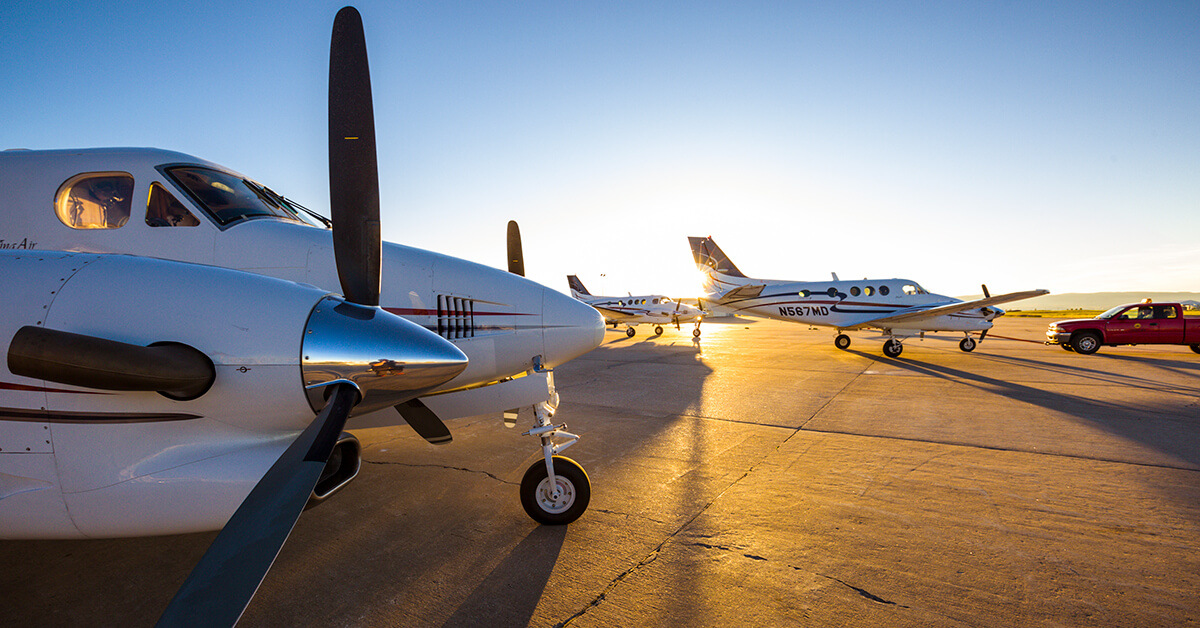
Oct. 1, 2020
Following a request from NBAA and other industry groups, the FAA is extending by four months relief granted through several exemptions contained in Special Federal Aviation Regulation (SFAR) 118-2 (Relief for Certain Persons and Operations during the Coronavirus Disease 2019).
SFAR 118 provides short-term extensions to certain training and proficiency requirements, medical certifications and other mandates. It is intended to allow affected pilots to continue providing essential services during the COVID-19 pandemic. In recognition of pandemic-related restrictions being eased around the country, SFAR 118-2 provides a two-month grace period beyond the normal due date for training and testing requirements, as opposed to the three-month grace period provided by previous iterations of the rule.
NBAA and other industry groups recently requested the extension of SFAR 118-1 in a letter to Associate Administration for Aviation Safety Ali Bahrami, explaining some COVID-19-related restrictions continue to negatively impact general and business aviation.
“We are pleased and heartened to see that the hard work by federal, state, and local governments and diverse groups of essential workers have resulted in a slowing and reduction of COVID-19 cases,” the letter stated. “As a result, individual states have begun lifting stay-at-home/shelter-in-place restrictions and businesses are beginning to reopen. Unfortunately, that is not universal.”
Though some restrictions are beginning to ease or disappear, many states and local governments are still enforcing social distancing requirements. The public remains wary of venturing out, and many aviation stakeholders desire to minimize their risk to exposure. These restrictions and individual health fears will also continue to create burdens and restrictions that will negatively impact the aviation community into the foreseeable future,” the letter continues.
Read the full text of the letter.
The revised SFAR includes the following:
- Additional extension of relief from certain training, recency, testing and checking requirements under Parts 61, 91 and 125 through Jan. 31, 2021
- Additional extension of relief from duration and renewal requirements for medical certificates and pilot knowledge test validity periods, among other requirements, in applicable parts of 61, 63 and 65 through Jan. 31, 2021
- Air carriers and operators may fly temporary overflow aircraft to a point of storage with a continuing authorization
“These temporary extensions will help ensure general and business aviation can continue to play a vital role in COVID-19 response, management and recovery,” said Brian Koester, CAM, NBAA director of flight operations and regulations. “NBAA appreciates Mr. Bahrami’s leadership during these difficult times and the agency’s collaboration with the industry to provide appropriate relief while continuing to ensure aviation safety.”
SFAR 118 became effective on April 30, 2020, with most relief in the previous extension expiring Sept. 30, 2020. The SFAR explains “the FAA expects that, with continued improvement over the next several months, no further relief will be necessary.”
It was at the 2020 Business Aviation Safety Summit, jointly sponsored by NBAA and the Flight Safety Foundation, where FAA Administrator Steve Dickson previewed his intention to approve the SFAR.


 International Business Aviation Council Ltd.
International Business Aviation Council Ltd.